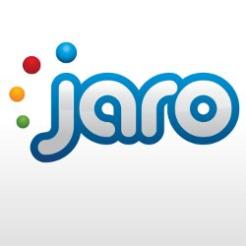A new social game which pits players against each other in a ‘numerical battleship’ reckons it can raise up to $1bn annually for charity.
Jaro, which is launched today in the UK, combines elements of social networking, gambling, the board game Battleship and bears more than a passing aesthetic resemblance to competitive suduko.
But, while a registered gambling company, it expects to be “the world’s largest single annual fundraising initiative”.
It costs US$10 (about £6.50) to play and at the point of purchase, players can decide how much of their $10 entry fee they want to direct to charity and how much they want to direct to the ultimate prize pot, which they stand to win if successful.
After buying tickets players will decide which causes and charities they would like their ticket price (or proportion of it) to benefit. Following market research, the Australian founders of Jaro have identified eight causal areas – from cancer to human rights – that will receive funds from the game, and have signed up 12 UK charities to benefit from allocations. The charities were selected both based on their brand and their “appetite for innovation”, said Jaro chief executive Anthony Farah.
The UK charities announced so far are Age UK, WWF-UK, Great Ormond Street Hospital Children's Charity, Amnesty, World Cancer Research Fund and the British Red Cross.
The game features two grids, three-by-three. Like the concept behind the board game ‘Battleship’, on one grid players set out their numbers, from one to nine, in an order of their choice. On the other grid they must guess what order their opponent has set out their numbers. Players then progress through the game by knocking out opponents. Jaro estimates it will take 27 successful games for a winner to emerge.
That winner will take home whatever amount of money players have allocated for the prize pot, but Jaro estimates that the total amount of money raised – both for the pot and for charities’ coffers – will be $1bn within the year. They expect the game to be an annual, year-long event.
Jaro is registered in the Isle of Man and UK by the relevant gambling authorities, and will be rolled out in other jurisdictions as it obtains licences there. But Farah suggested that Jaro is not a simple game of chance, which is the typical distinction made in law to identify which games need to be regulated by gambling authorities, telling civilsociety.co.uk that players will be able to view their opponents' past strategies and use that to inform their own game.
Peter Lewis, chief executive of the Institute of Fundraising, said that the Institute was working with the new initiative, who are corporate supporters. "We're proactively trying to introduce our members to innovative things," he said.








